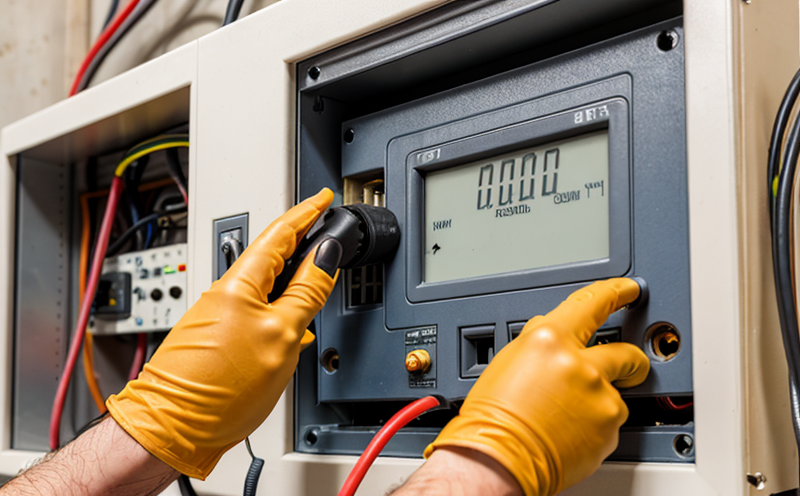IEC 61982-3 Functional Testing of Batteries for Electric Road Vehicles
The International Electrotechnical Commission (IEC) Standard IEC 61982-3 is a critical document that outlines the functional testing requirements for batteries intended to be used in electric road vehicles. This standard ensures that the batteries meet stringent performance, safety, and reliability criteria before being incorporated into such vehicles.
The primary focus of this test involves simulating real-world operational conditions through various tests designed to validate the battery's ability to supply power under different operating scenarios. These scenarios include but are not limited to temperature variations, load demands, and charging/discharging cycles. The testing process aims to verify that the batteries perform consistently across all specified parameters without compromising safety or durability.
For quality managers and compliance officers working in this sector, understanding these tests is crucial for ensuring product integrity and regulatory adherence. For R&D engineers, it provides a roadmap towards optimizing battery performance while maintaining high standards of safety. From an engineering standpoint, the tests ensure that batteries are capable of meeting the stringent demands placed upon them by electric road vehicles.
One key aspect of IEC 61982-3 is its emphasis on environmental factors such as temperature and humidity. These elements significantly influence battery performance; hence they must be accurately simulated during testing to reflect actual usage conditions. Additionally, the standard covers various types of tests including charge acceptance, discharge capacity, internal resistance measurement, self-discharge rate evaluation, and more.
The importance of functional testing cannot be overstated when dealing with electric road vehicles. It ensures not only the safety but also the reliability of the vehicle's power source—a critical component in any electric drive system. By adhering to this standard, manufacturers can ensure that their products meet international quality standards and are suitable for use in various climates and operating conditions.
Another important consideration is the impact on battery life; repeated cycles of charge and discharge can significantly shorten a battery’s lifespan if not properly managed. The functional tests provided by IEC 61982-3 help identify potential issues early on, allowing manufacturers to address them before they become critical problems.
Lastly, it is worth noting that the standard also considers aspects related to recyclability and environmental impact, aligning with broader sustainability goals within the industry. As electric road vehicle technology continues to evolve, so too must our testing methodologies ensure we are meeting future challenges head-on.
Applied Standards
| Standard | Description |
|---|---|
| IEC 61982-3 | Functional testing of batteries for electric road vehicles. |
EuroLab Advantages
EuroLab offers unparalleled expertise in IEC 61982-3 functional testing, leveraging state-of-the-art facilities and experienced personnel to provide comprehensive services. Our laboratory is equipped with advanced testing equipment capable of simulating a wide range of operating conditions, ensuring accurate results that meet the highest standards.
Our team consists of seasoned professionals who stay abreast of the latest developments in the field, enabling us to offer cutting-edge solutions tailored specifically to your needs. With years of experience under our belt, we understand what it takes to deliver reliable and repeatable test outcomes consistently across all projects.
In addition to providing top-notch technical support during testing, EuroLab also offers detailed reports summarizing findings from each session. These reports are designed not only for internal use but also for submission to regulatory bodies if required by law or contractually obligated.
Quality and Reliability Assurance
- Comprehensive suite of testing options available.
- Detailed reporting capabilities ensuring compliance with all relevant regulations.
- State-of-the-art equipment for precise measurements under varying conditions.
- A team of highly qualified professionals specializing in this area.





